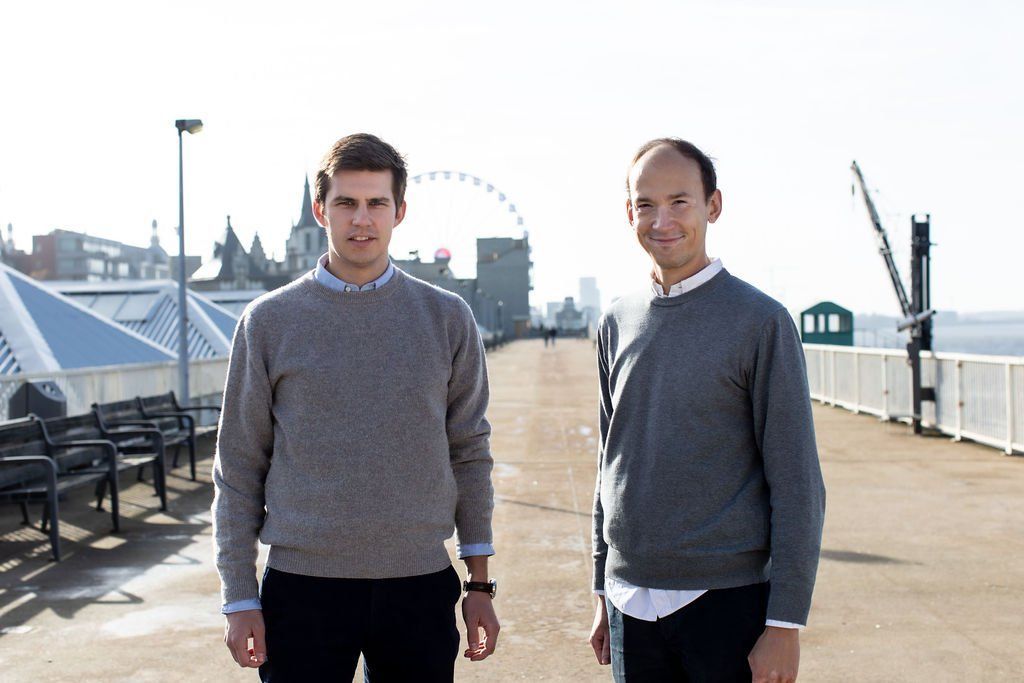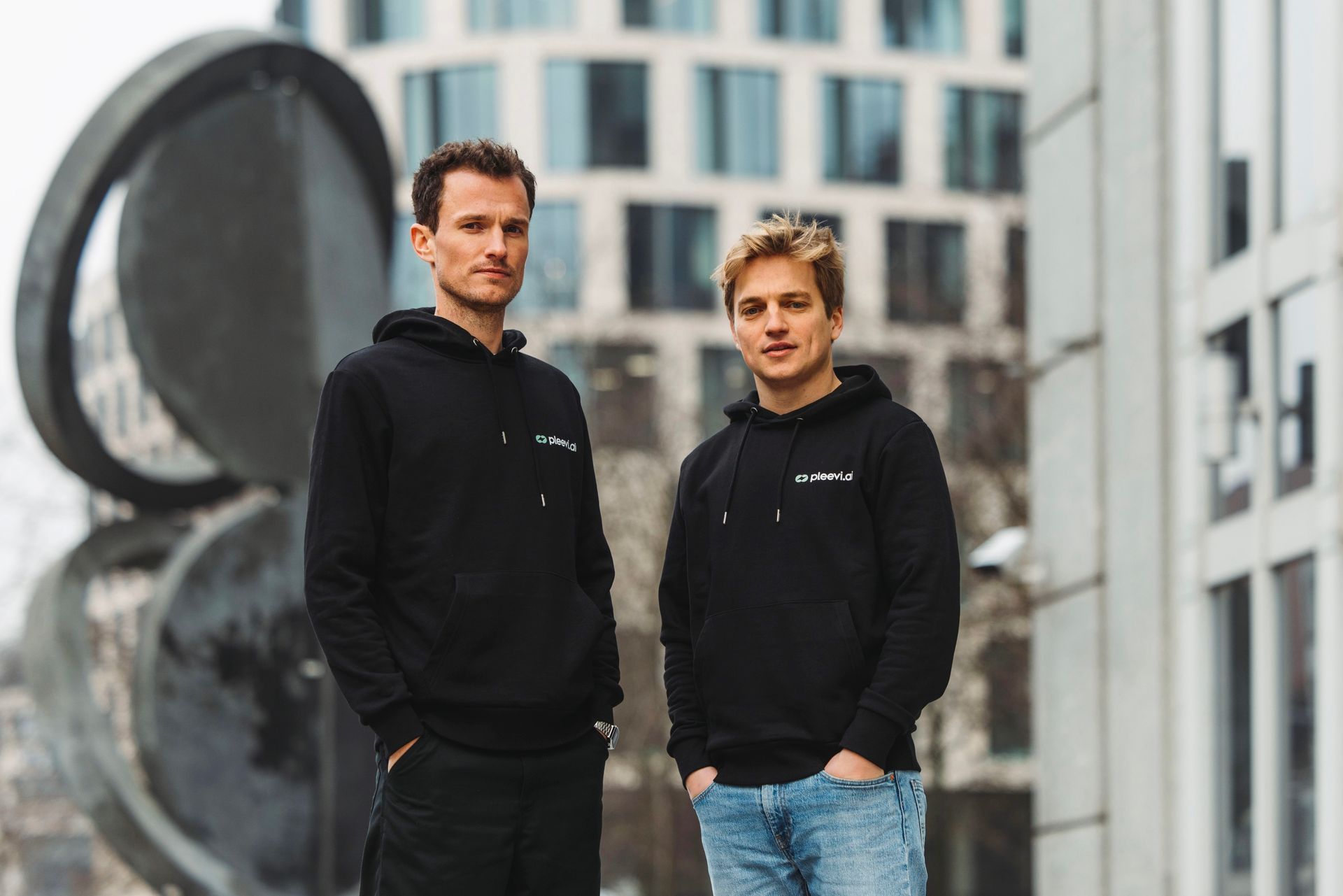The Ghent-based scale-up streamlines work instructions, training, and quality controls.
Written by Joris Hendircks
Brussels, Dec. 14 – Recently Batist Leman, CEO Azumuta, had an interview with the Trends Business Magazine. There, Batist shared his views on the most significant challenges to our modern-day manufacturing scene, such as the skills gap issue, increasingly tight regulations, and unchecked international competition.
To address these challenges, Batist conveyed his “disruptive innovation” solutions and how using Azumuta’s one-stop manufacturing software will alleviate even the most complex challenges.
The original article was written in Dutch, translated below:
Azumuta has developed an integrated platform that helps the manufacturing sector to streamline work instructions, training, and quality controls – with better employee versatility and productivity as the main impact. This is something that the manufacturing sector urgently needs: the Ghent-based scale-up, with clients such as Atlas Copco, Novy, and Nitto, has recently raised EUR 2,8 million to speed up its international growth – as explained by the CEO Batist Leman
“Any production process is becoming more complex due to the increasing quality requirements and regulations. This, combined with a tight labor market, a lower-qualified workforce, and rising competition from abroad, makes digitalizing the production processes a must for any manufacturer who wishes to survive.”
“The increasing complexity makes it challenging for shop floor operators to know precisely what they’re supposed to do. As a result, quality issues will emerge, and operators will take a long time to be properly trained. Therefore, our system offers a digital assistant for shopfloor operators, something that’s often overlooked even today.”
Disruptive innovation
“In the era of digital transformation and industry 4.0, where technological advancements bring ground-breaking changes for manufacturers, a critical element is often neglected: the role of operators. This is where Azumuta steps in.”
“Our software knows well the unique potentials of all operators and fully integrates them into the digitalization process. While many companies focus on large-scale technological upgrades, Azumuta offers a new approach by emphasizing the crucial human element. Such software is more relevant than ever, as proven by the strong demands from domestic and international clients, ranging from small & medium-sized enterprises to multinationals. These companies, spread across vario
us industries and regions, fully understood the values of our approach to this disruptive innovation.”
“Azumuta was designed to streamline work, improve communications, and support efficient decision-making processes on the shop floor. With contextual information, built-in error detection systems, and user-friendly & intelligent interfaces, operators will know precisely what they must do while the management obtains real-time information from these data. By integrating it into the existing production systems, you can immediately achieve sustainable efficiency improvements.”
Operational excellence
“Often, quality controls are done at the end of the production process, which means defects are only detected late. Therefore, our system uses inline quality control. In combination with digital work instructions, all parameters are continuously captured, such as ticking off completed tasks, measuring weights and accepted deviation tolerance, etc. If there are deviations or errors, you can intervene earlier, where the products’ quality is significantly improved, and they don’t have to be disposed of due to defects. That’s an essential component in the ESG strategy.”
Agile workforce
“Companies often have little knowledge of their workers’ complete skillset. Moreover, workers can always leave or retire. This means that some specific shop floor know-how can be lost. Our system lets users know which employee has which expertise, in which skill set workers should be further trained, and which skills haven’t been fully mastered yet in a team. Furthermore, it’s not easy to find new workers at the moment.”
“Often, companies have to hire workers with a training and education background that is lower or doesn’t fully match what is expected. They might not understand the production process, making on-the-job training more important than ever. Digital work instructions and inline quality control offer top-notch support to deliver high-quality work. This module also allows you to comply with the legal requirement to show the number of training hours that your workers have undergone. All of this is fully automated, removing a significant administrative burden.”
“Previously, decisions were taken top-down, and workers on the shop floor were supposed to simply implement these decisions. However, we believe that shop floor workers possess significant know-how on how things can be done more efficiently. To engage them, we have added a communication module where they can swiftly indicate problems and share their ideas. They can also get feedback in the same way.”
Strong growth
“In conclusion, we can say that our platform enables manufacturing companies to improve their operational efficiency and time-to-market rate. Our unique focus on operators allows our clients to organize their workforce in an agile manner. This makes our platform a perfect addition to the existing MES and ERP systems. The quick and profitable growth of Azumuta, the success of our clients, and increasing demands from abroad mean that analysts and investors recognize the importance of this market. Recently, we have raised EUR 2.8 million to support our effort to fulfill increasing international demands.“
Contact
https://www.azumuta.com/company/contact/


"If you want to go fast, go alone; if you want to go far, go together."
(African Proverb)
Alle rechten voorbehouden || Angelwise



